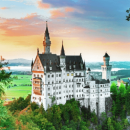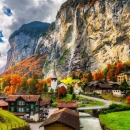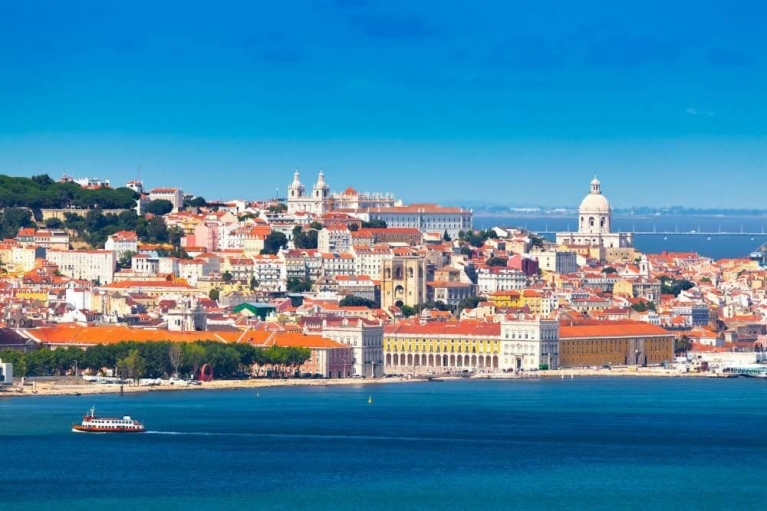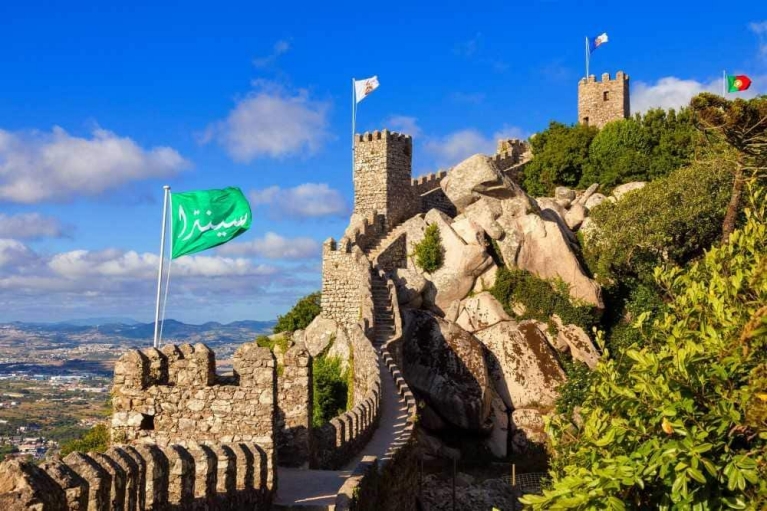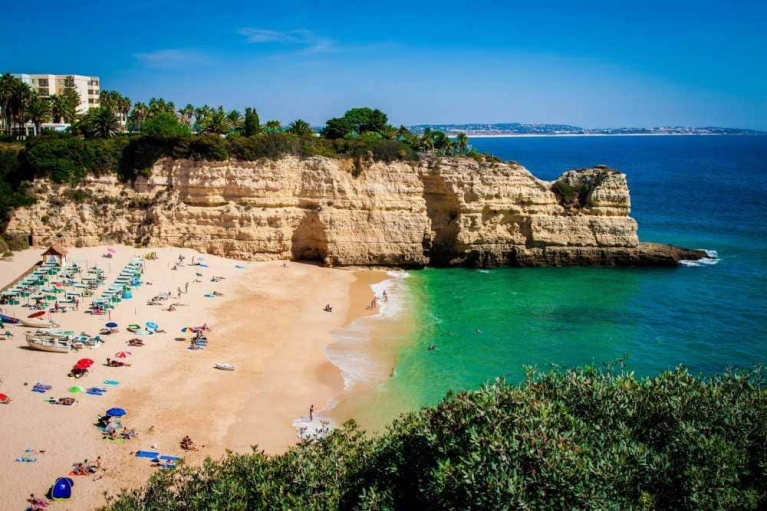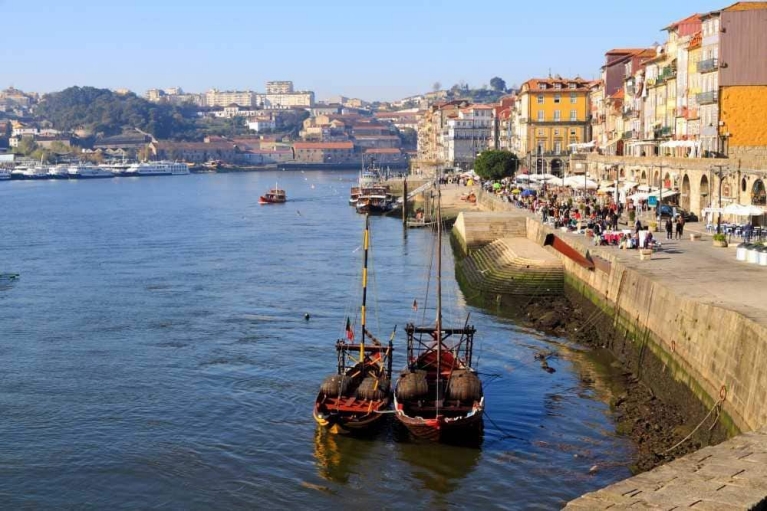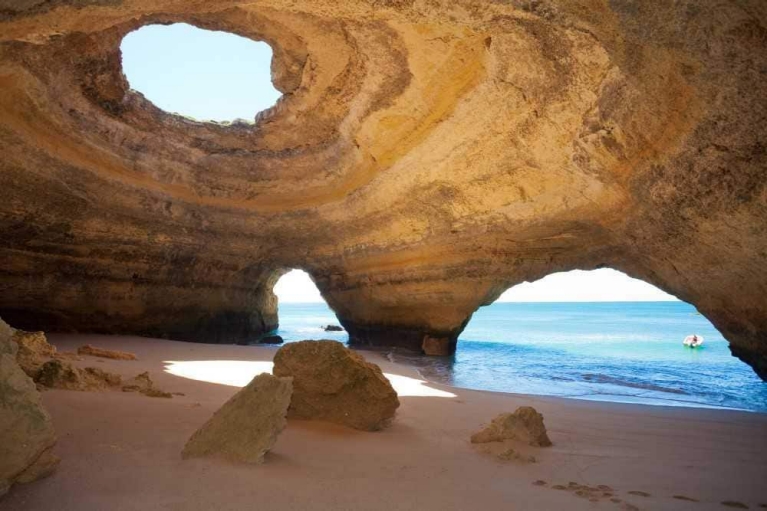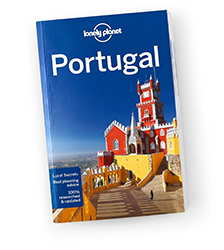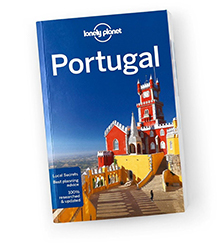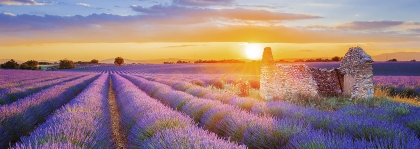
Portugal
Laid-back and lovely, best enjoyed with Port wine!
Travelling by train across the country of Portugal will reveal the many secrets of the rich Portuguese culture. With your Interrail Pass - soak up the energetic vibe of Lisbon, discover the stunning beaches of the Algarve and taste traditional wines from Porto. In Portugal, prepare to be amazed with every step.
Trains in Portugal

Read all the information you’ll need about Portugal’s rail network, different train types and reservation requirements.
More about trains in Portugal
Interrail passes for Portugal
Interrail Portugal Pass
The Interrail Portugal Pass takes you to the highlights of Portugal like Lisbon, Porto and Coimbra.
Interrail Global Pass
The Interrail Global Pass is the flexible and budget-friendly way to get around up to 33 countries in Europe. Travel by train from one cool destination to the next. One day you're on a pub crawl through Amsterdam and the next you're white-water rafting in Interlaken, Switzerland.
Places to visit
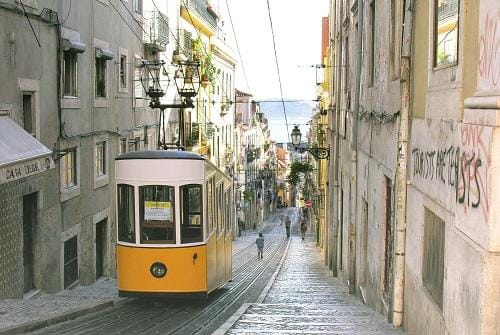
Lisbon: Lovely city on seven hills
Lisbon (Lisboa) is a real European city treat. The city is built upon seven large hills, overlooking the Tagus River. For the most spectacular views across the city head up to the top of Castelo de São Jorge. The oldest part of Lisbon is seated over the walls of the castle, known as the Alfama quarter and is coated with windy cobbled alleyways and peppered with a provincial aura. Every Tuesday and Saturday the Campo de Santa Clara opens up to the city’s humming flea market, where you can rummage about for some local bargains.

Be adventurous in Portugal
Each year surfers flock to Portugal’s surf-lined beaches. A stunning little gem is Sagres, situated on the south-west tip of the country and surrounded by unspoilt beaches. It’s a good spot for learners and has a number of surf schools that offer board hire as well as surf courses. For non-water-based sports pay a visit to Portugal’s only national park, Parque Nacional de Peneda-Gerês in the north-west. Try your hand at canyoning, horse riding, canoeing and rafting amongst unspoilt flora and fauna.
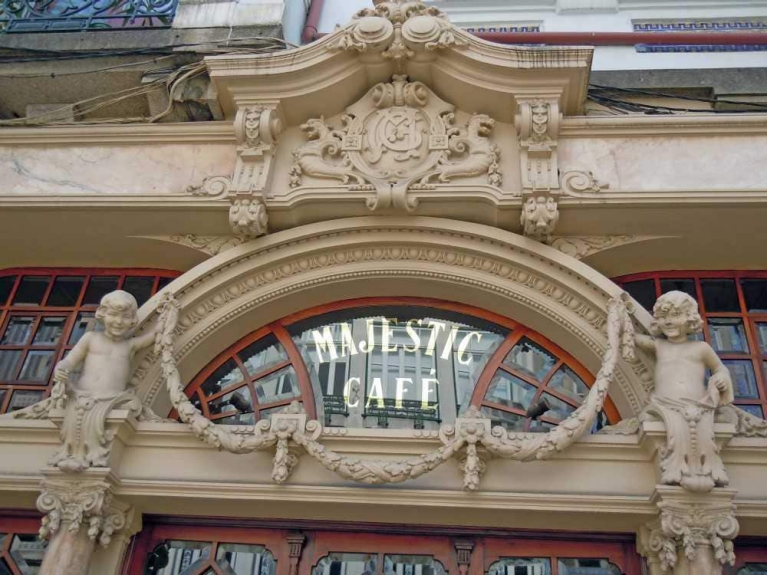
Party ‘til the sun comes up
A good party place outside the capital is Lagos, situated along the popular Algarve coastline. By night, join other travellers and folk who appear to have got stranded in this seaside town, to infiltrate the local bars and by day recover on the sun-kissed sands ready for the next night. Competing with Lisbon for the best nightlife spot is Porto. Head to Ribeira in the city’s downtown for cheap, studenty bars and continue the night in the Foz area, where the Hard Club is usually pumping out music from international DJs ‘til the early hours.
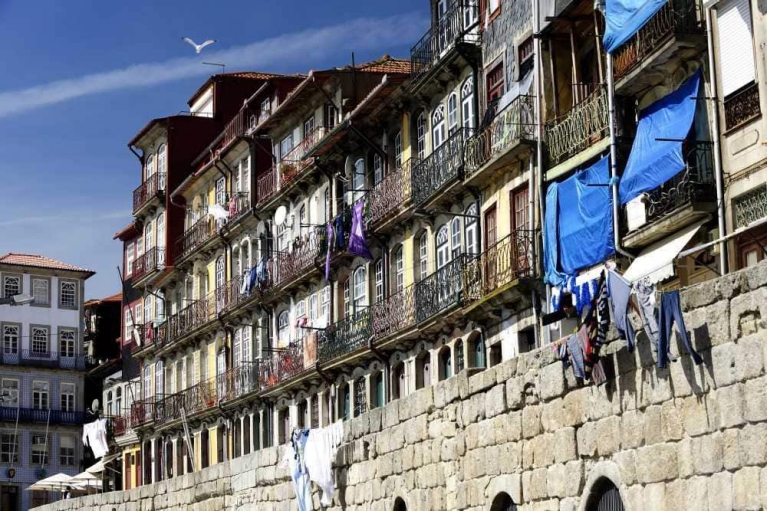
Port in Porto
In the north not so far from the Spanish border is Portugal’s second largest city: Porto. It’s more a modern city and is well-known for its great football stadium and passion for the game. The more traditional face of Porto can be found around Ribeira – a waterfont quarter, where you can hop on a boat and glide along the River Douro. While in the area visit Vila Nova de Gaia, famous for its port lodges, which store and age this delicious tipple, exclusively produced in the nearby Douro Valley.

Sun-soaked coastline
It’s not surprising that the Algarve, Portugal’s southern coast, is the most visited part of the country – showcasing some of Europe’s most alluring seaside. A good starting point from which to venture to the South’s terrific beaches, is Faro – a historic town with a laid-back temperament. However, you don’t have to venture all the way south to enjoy Portugal’s splendid shores – great beaches can also be found just a stone’s throw from Lisbon. South of the city along the Costa da Caparica are kilometres of untouched dunes.
Get 20% off Lonely Planet travel guides
From essential info to insider tips, learn everything there is to know about Portugal with 20% off Lonely Planet guide books for Interrail customers. Just use the promo code INTERRAIL20 at checkout.
Events

Terras sem Sombra
Terras sem Sombra is a civilian initiative in Beja. It has a high international level and dialogue between heritage, music and biodiversity. The past and the contemporary creation, the intersections among the arts, the rescue of musicological heritage, are structural elements of the project. This background shows the relevance of the environmental and cultural value of this territory, presenting one of the best indexes of preservation in Europe.

Temporada de Música Erudita - Parques de Sintra
The Music Season, staged by Parques de Sintra – Monte da Lua and with Artistic Direction ensured by Divino Sospiro, has fostered the revitalisation of the Palaces through their musical heritage, boosting the link between heritage and music. Spanning a vast repertoire, ranging from the Medieval to the Romantic periods, the Music Season is subdivided into three cycles, distributed over the year and dedicated to the specific repertoires appropriate to the epoch of each Palace.
Find more information here.
Change of currency
You cannot change the currency once you have a Pass in your cart. Remove the Pass, and then change the currency on the website header.
